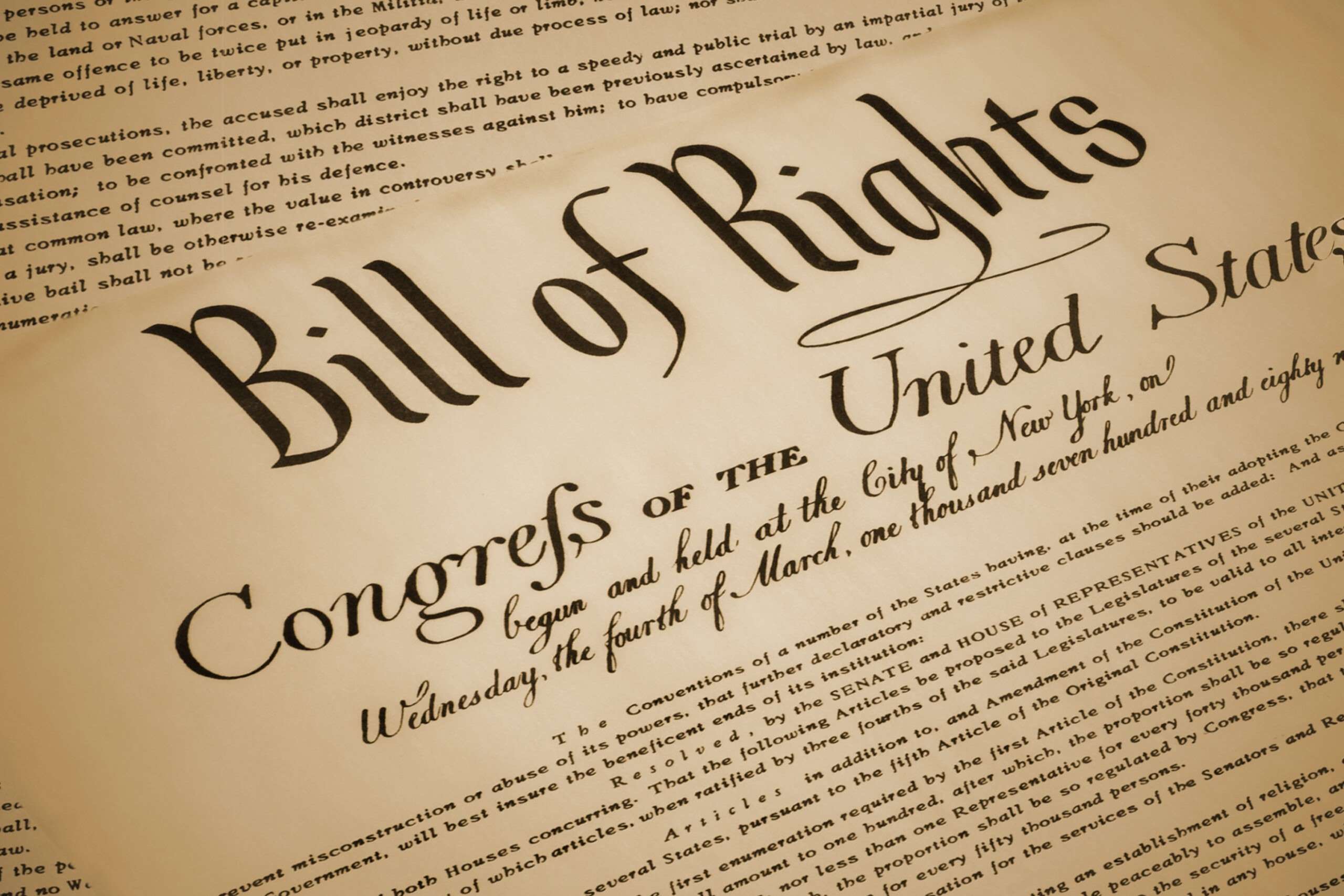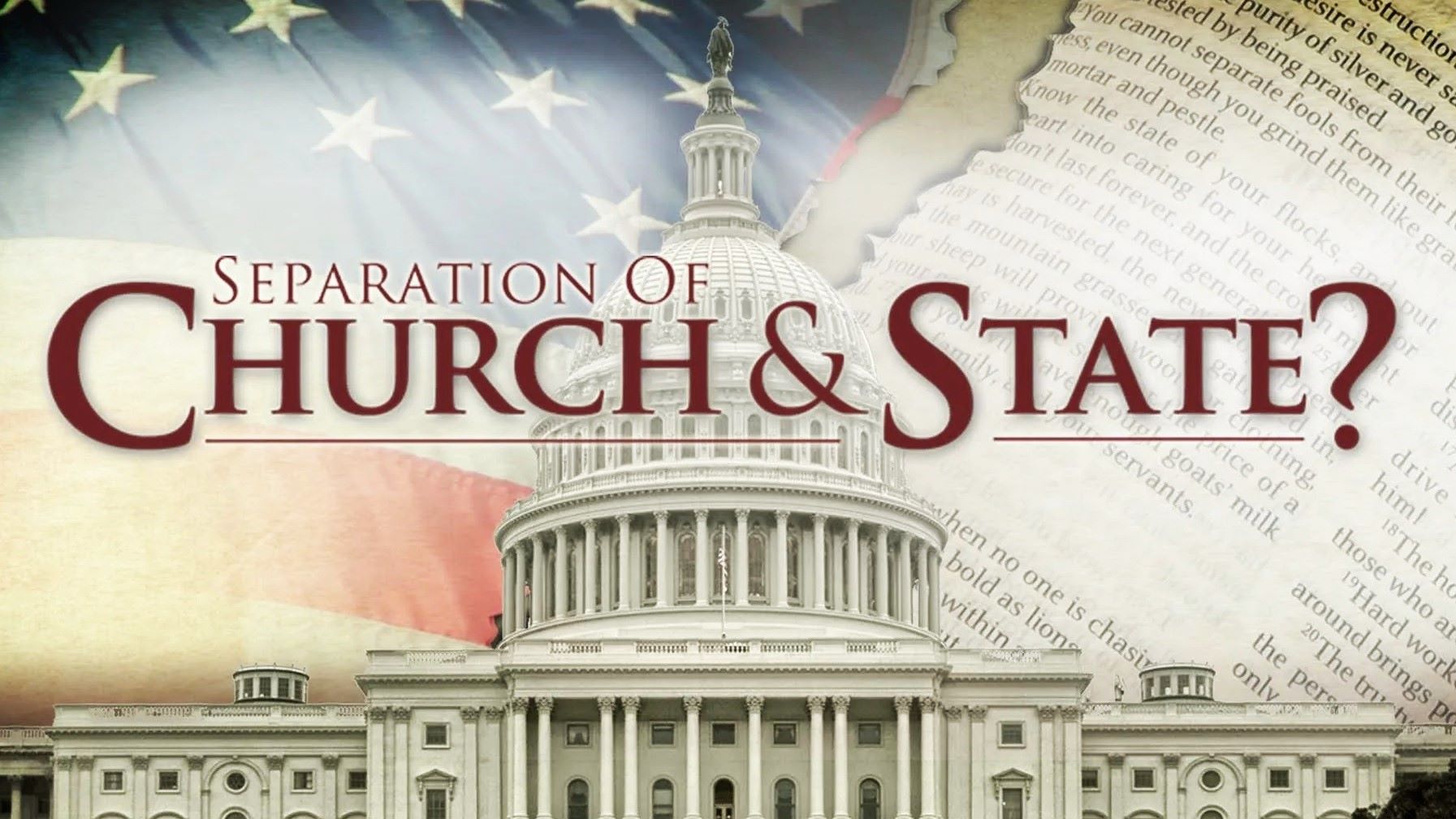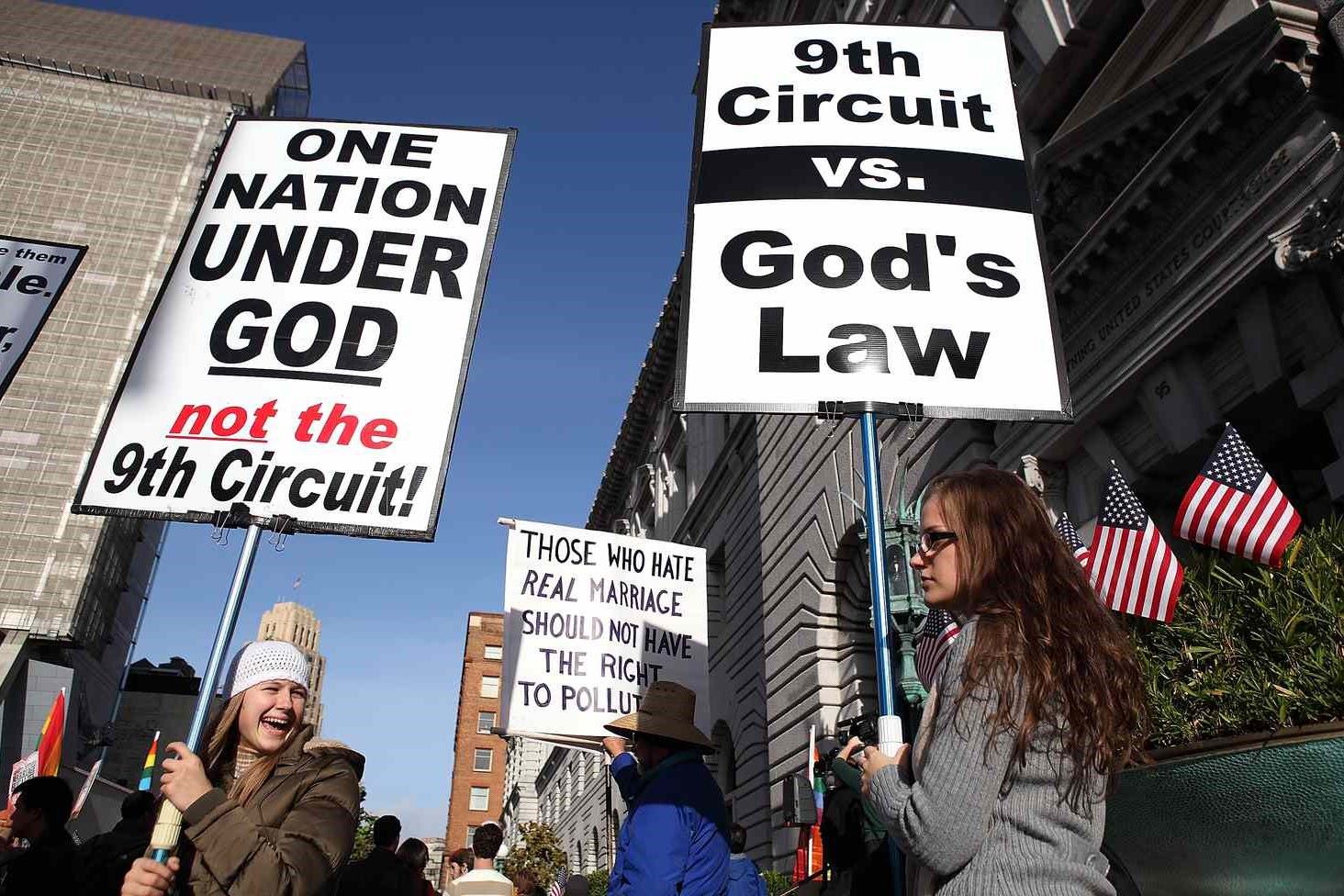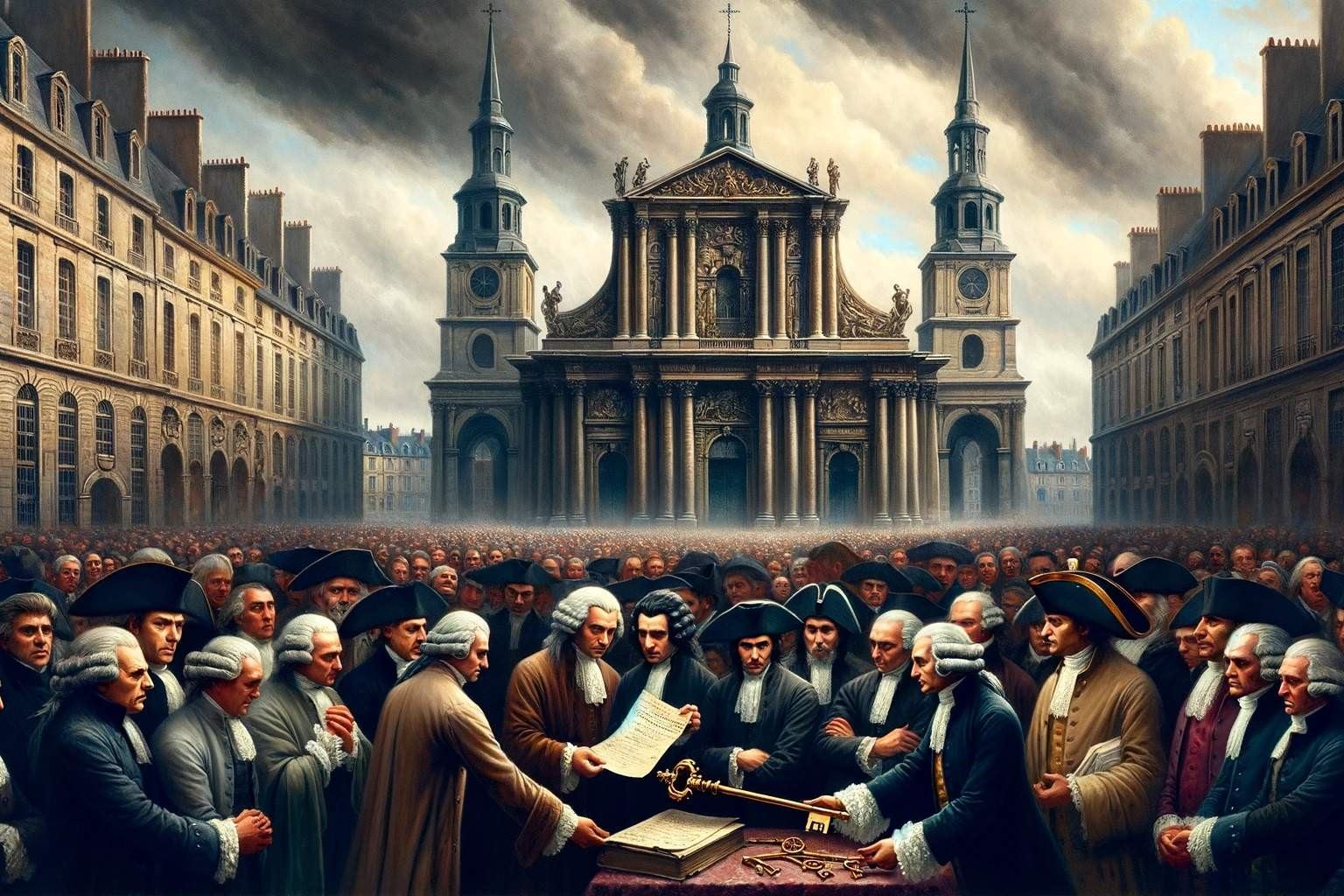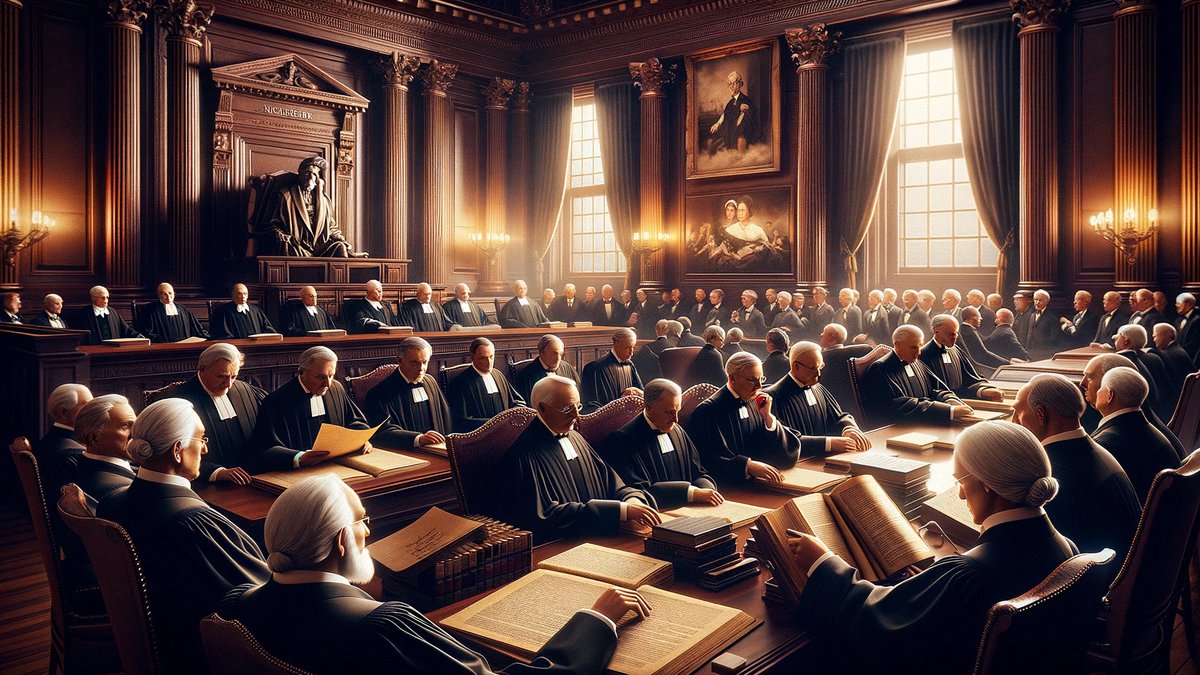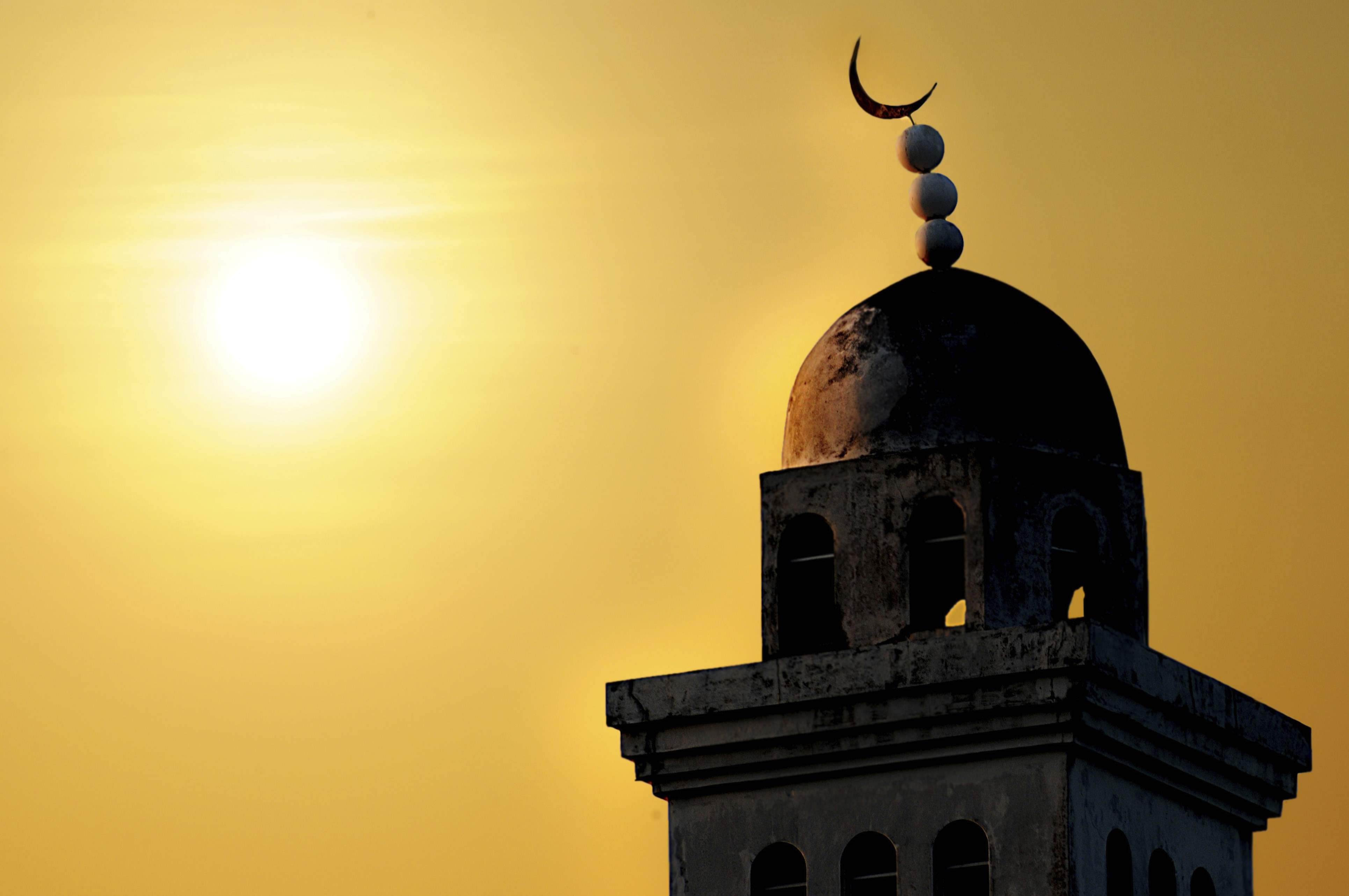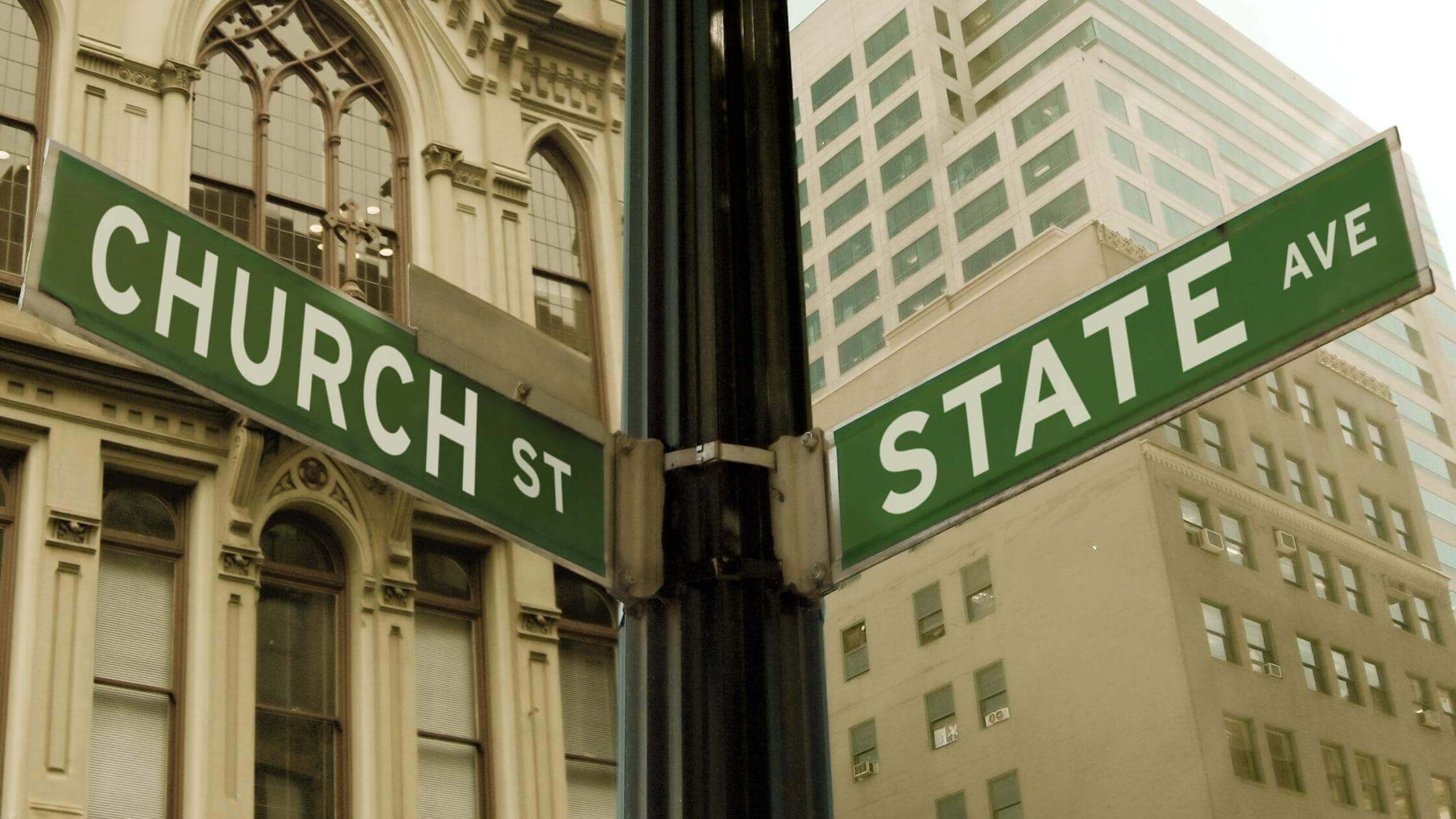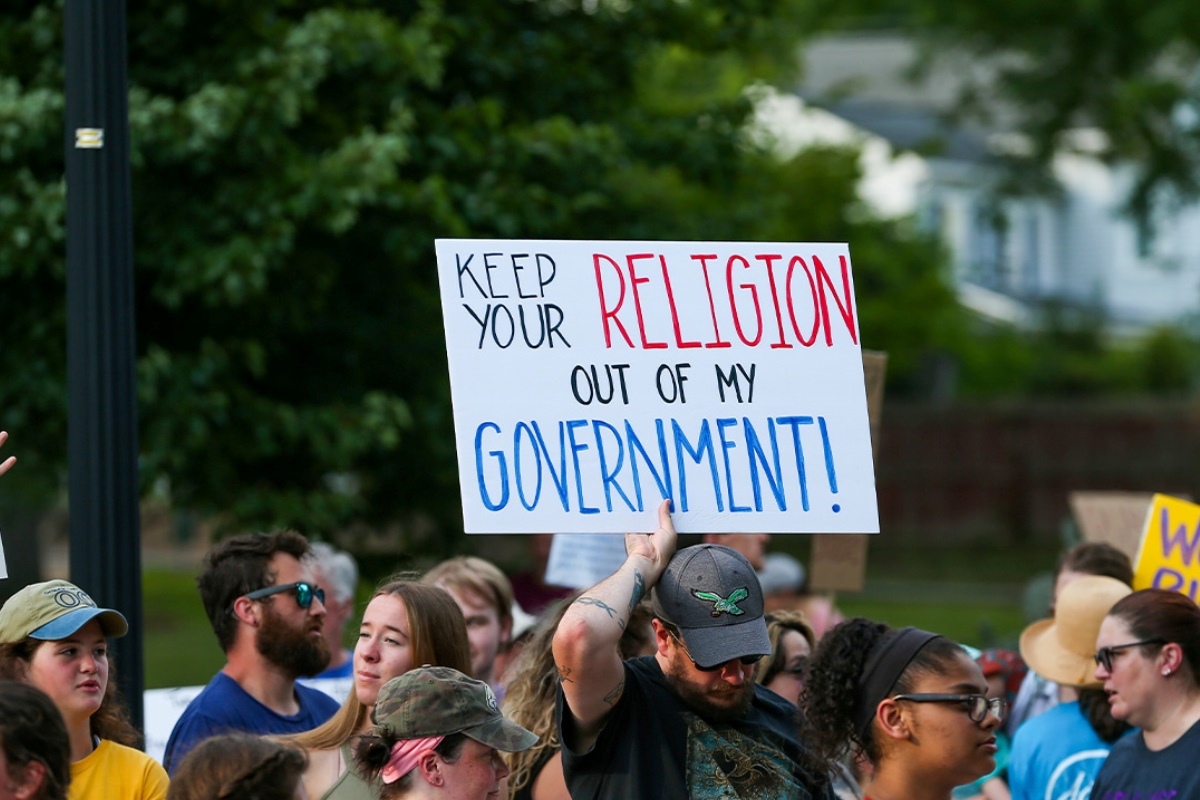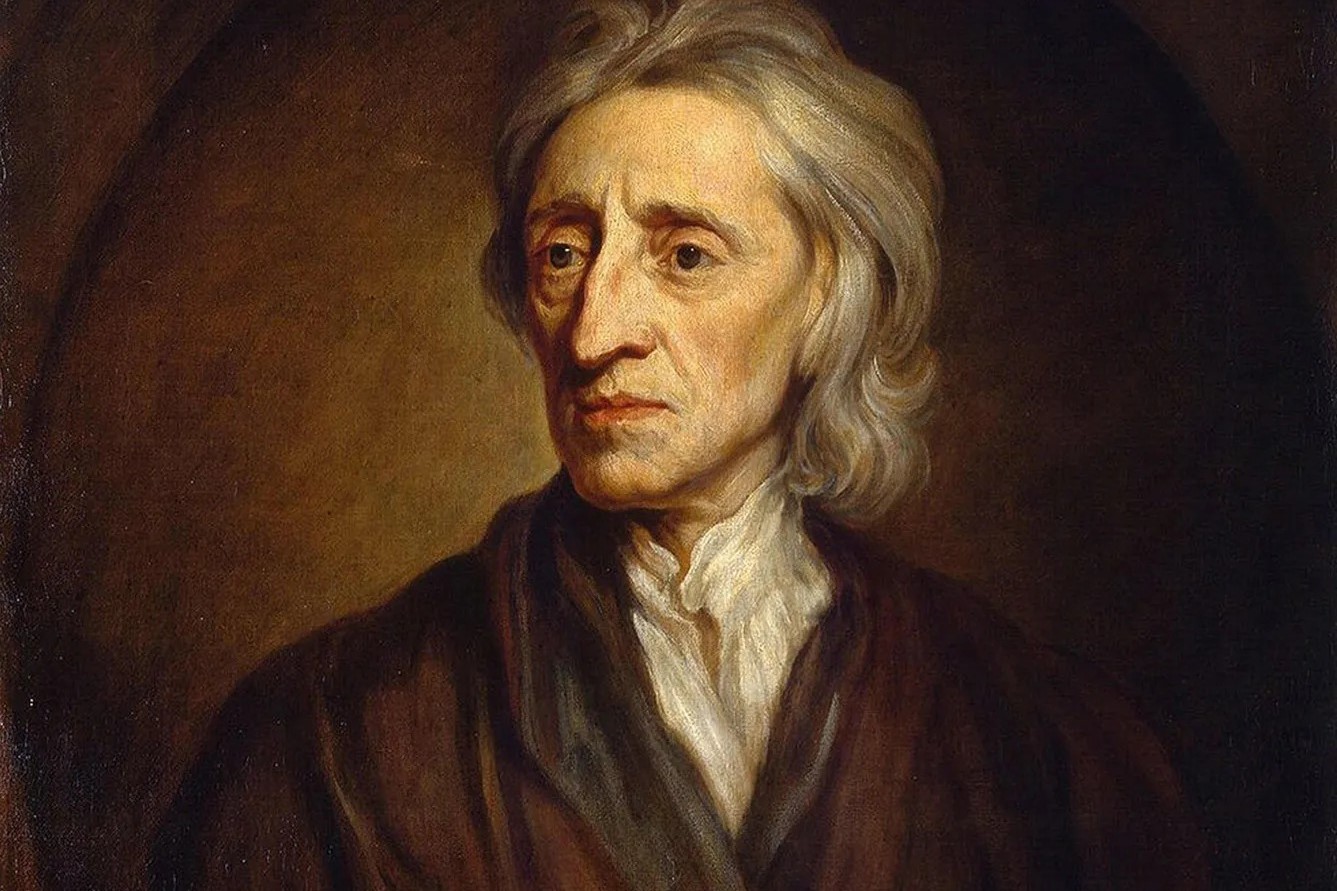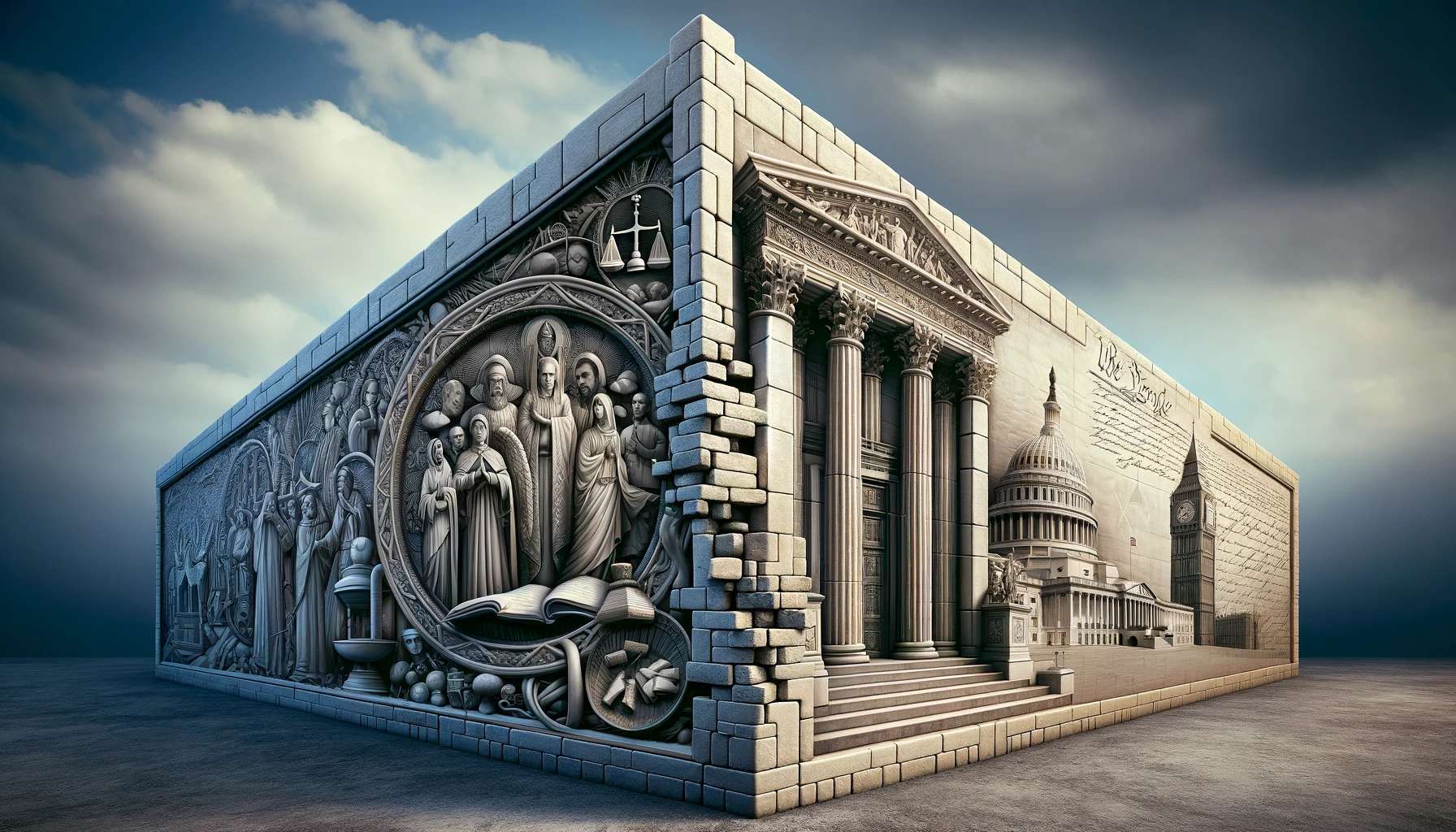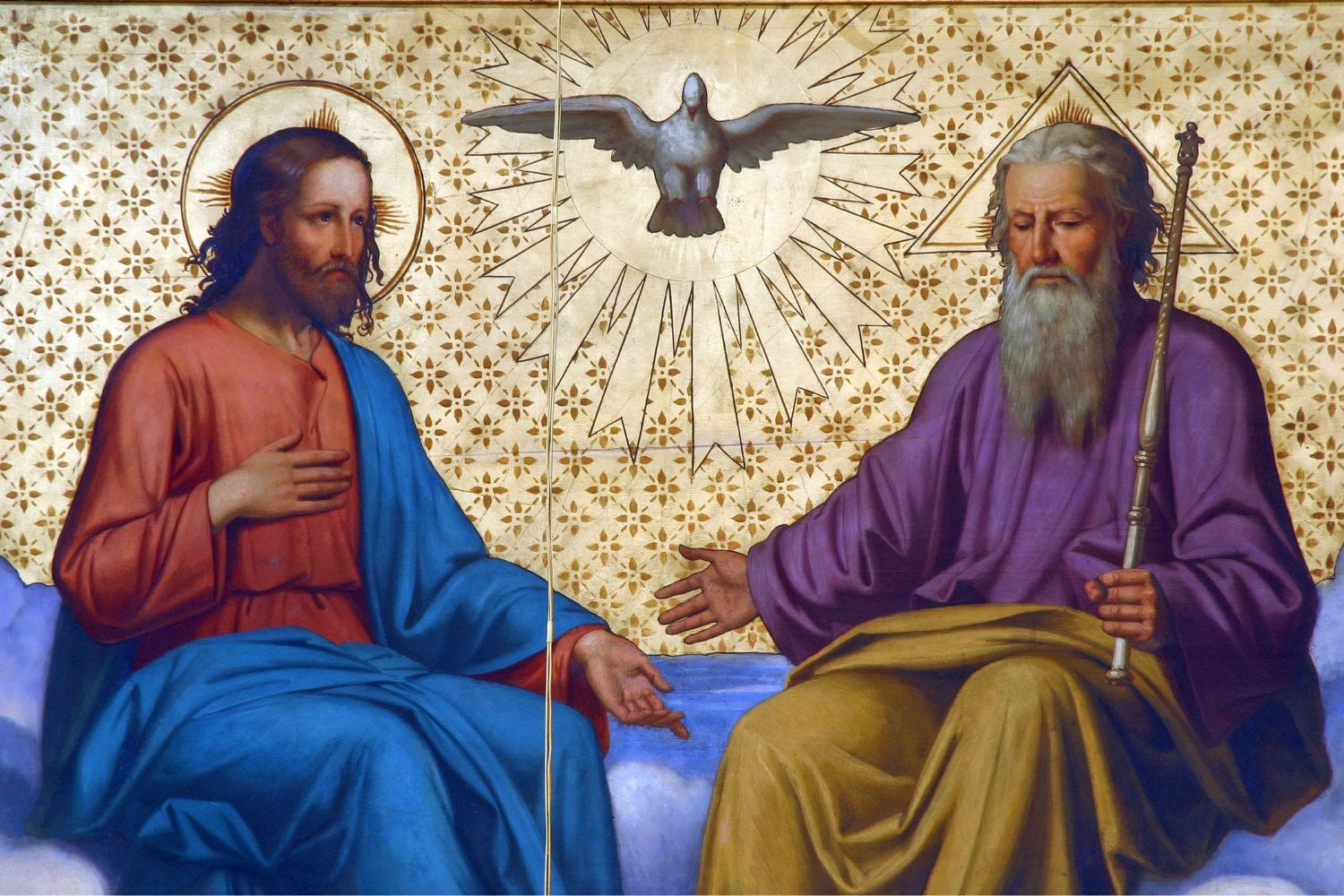Home>Theology and Spirituality>What Did Thomas Jefferson Say About Separation Of Church And State
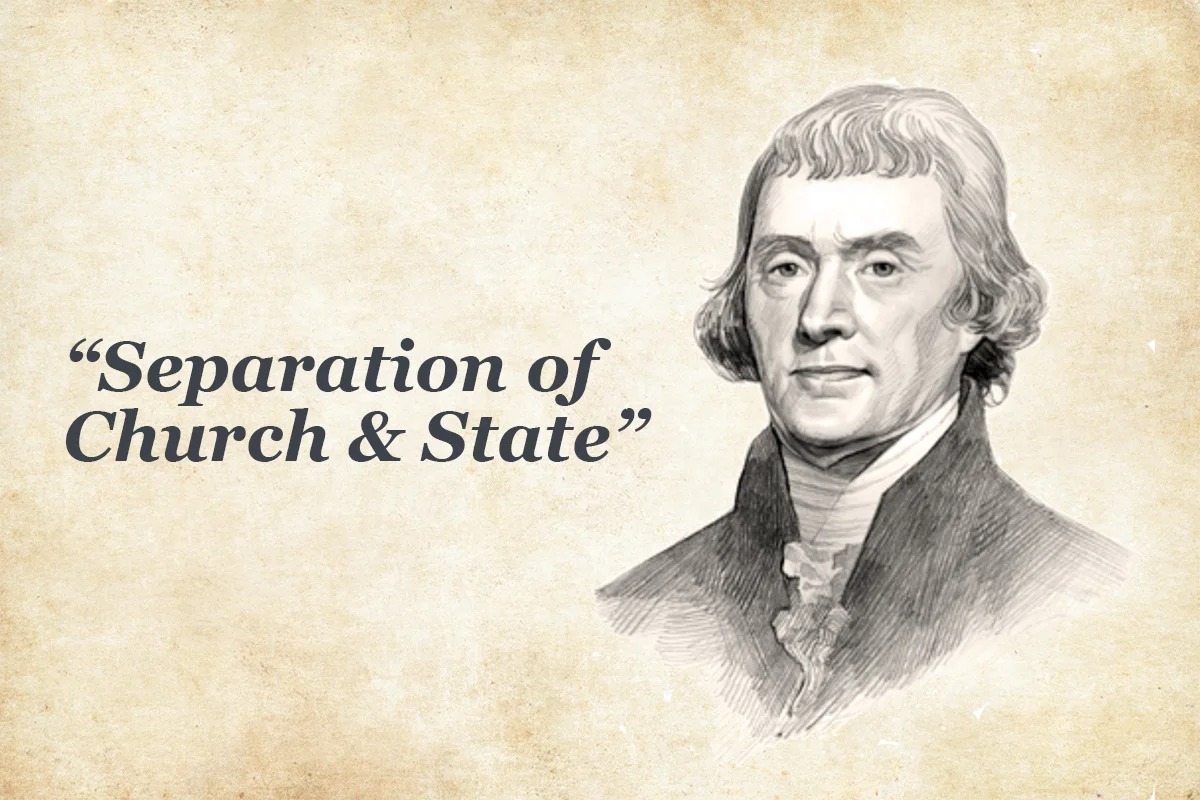

Theology and Spirituality
What Did Thomas Jefferson Say About Separation Of Church And State
Published: February 11, 2024
Peter Smith, Editorial Director at Christian.net, combines deep insights into faith, politics, and culture to lead content creation that resonates widely. Awarded for his contributions to religious discourse, he previously headed a major organization for religious communicators, enhancing dialogue on faith's societal impacts.
Discover Thomas Jefferson's views on the separation of church and state and its impact on theology and spirituality. Explore his influential quotes and beliefs.
(Many of the links in this article redirect to a specific reviewed product. Your purchase of these products through affiliate links helps to generate commission for Christian.net, at no extra cost. Learn more)
Table of Contents
Introduction
Thomas Jefferson, one of the founding fathers of the United States, was a man of many talents and profound wisdom. His thoughts on the separation of church and state have had a lasting impact on American society and the interpretation of the First Amendment. Jefferson's views on religion and governance were deeply rooted in his belief in individual liberty and the importance of keeping religious influence separate from the affairs of the state.
Jefferson's stance on the separation of church and state has been a subject of much debate and interpretation over the years. His words and actions continue to shape the discourse on the relationship between religion and government, making it essential to delve into his perspectives to gain a comprehensive understanding of this crucial issue.
In this article, we will explore Thomas Jefferson's views on religion, his concept of the "wall of separation" between church and state, and the lasting impact of his ideas on the governance of the United States. By examining Jefferson's letter to the Danbury Baptists and the subsequent influence of his beliefs, we can gain valuable insights into the historical and philosophical underpinnings of the separation of church and state in America. Let's embark on a journey to unravel the profound wisdom of Thomas Jefferson and its enduring significance in shaping the fabric of American society.
Thomas Jefferson's Views on Religion
Thomas Jefferson held complex and nuanced views on religion that were deeply influenced by the intellectual currents of the Enlightenment. He was a proponent of religious freedom and individual conscience, advocating for a society where individuals were free to practice their faith without interference from the government. Jefferson's beliefs were shaped by his experiences and observations, leading him to develop a profound understanding of the relationship between religion and governance.
Jefferson was a staunch advocate of the separation of church and state, emphasizing the need to prevent the establishment of a state religion and to safeguard the rights of religious minorities. His commitment to religious freedom was evident in his efforts to disestablish the Anglican Church in Virginia and his support for the Virginia Statute for Religious Freedom, which he considered one of his most significant achievements.
Despite his advocacy for religious freedom, Jefferson's personal beliefs regarding organized religion were complex. He was critical of institutionalized Christianity, expressing skepticism towards traditional doctrines and dogmas. His private correspondence and writings reveal a deep-seated skepticism of religious orthodoxy, leading some to characterize him as a deist who believed in a distant, impersonal deity rather than the interventionist God of traditional Christianity.
Jefferson's views on religion were also shaped by his admiration for the moral teachings of Jesus Christ. He regarded Jesus as a moral philosopher and sought to distill his ethical teachings from the theological dogmas that had accrued around Christianity. This led him to compile the "Jefferson Bible," a unique work that omitted supernatural elements and focused solely on the ethical and moral teachings of Jesus.
In essence, Thomas Jefferson's views on religion reflected a commitment to individual liberty, religious pluralism, and the separation of religious institutions from the mechanisms of state power. His belief in the primacy of personal conscience and the need to protect religious minorities from the tyranny of the majority continues to resonate in contemporary discussions on the role of religion in public life. Jefferson's legacy as a champion of religious freedom and a proponent of the separation of church and state endures as a foundational principle of American governance.
The Wall of Separation
The concept of the "wall of separation" between church and state, attributed to Thomas Jefferson, has become a defining metaphor in discussions about the relationship between religion and government in the United States. Jefferson's use of this metaphor in his correspondence with the Danbury Baptists in 1802 has had a profound and lasting impact on constitutional law and the interpretation of the First Amendment.
In a letter to the Danbury Baptists, Jefferson articulated his belief in the necessity of a metaphorical wall that would prevent the intrusion of religious authority into the domain of civil governance and, conversely, shield religious institutions from the coercive powers of the state. This metaphorical wall, as envisioned by Jefferson, was intended to safeguard the autonomy of both the church and the state, ensuring that neither would unduly influence or interfere with the affairs of the other.
Jefferson's metaphor of the "wall of separation" has been widely cited and debated in legal and scholarly circles, shaping the understanding of the Establishment Clause of the First Amendment, which prohibits the establishment of a state religion and protects the free exercise of religion. The Supreme Court has invoked Jefferson's metaphor in landmark cases to delineate the boundaries between religious and governmental spheres, emphasizing the need to maintain a neutral stance towards religion and to prevent the entanglement of religious institutions with the machinery of the state.
The "wall of separation" metaphor has been instrumental in shaping the legal framework for religious freedom and the accommodation of diverse religious beliefs within the public sphere. It has served as a guiding principle for courts and policymakers in navigating the complexities of religious pluralism and the constitutional imperative to uphold individual liberty and equality.
While the metaphor of the "wall of separation" has been the subject of vigorous debate and interpretation, its enduring legacy lies in its role as a symbol of the fundamental principles of religious freedom and the separation of church and state. Jefferson's metaphor continues to resonate as a powerful reminder of the need to maintain a clear and distinct boundary between the realms of religion and government, ensuring that both can flourish independently while respecting the rights and freedoms of all individuals.
The "wall of separation" metaphor, rooted in Jefferson's commitment to religious freedom and the protection of individual conscience, remains a cornerstone of American jurisprudence and a testament to the enduring relevance of his visionary ideas in shaping the fabric of a diverse and pluralistic society.
Jefferson's Letter to the Danbury Baptists
In 1802, the Danbury Baptists, a religious minority in Connecticut, wrote a letter to President Thomas Jefferson expressing their concerns about religious freedom. They feared that the state government might infringe upon their religious liberties, as there was an established Congregational Church in Connecticut. In response to their letter, Jefferson crafted a carefully worded reply, outlining his views on the relationship between religion and government.
In his letter, Jefferson employed the now-famous phrase "wall of separation between church and state," which has since become a cornerstone of American constitutional law. He assured the Danbury Baptists that the First Amendment had erected a "wall of separation" that prevented the government from interfering with religious practices and beliefs. This metaphorical wall, as envisioned by Jefferson, was intended to protect both religious institutions and the government from undue influence or control by the other.
Jefferson's letter to the Danbury Baptists reflected his commitment to religious freedom and the principle of non-establishment of religion. He emphasized that the legitimate powers of government should reach actions only and not opinions, ensuring that individuals were free to exercise their religious beliefs without fear of government interference. This correspondence underscored Jefferson's belief in the importance of maintaining a neutral stance towards religion, safeguarding the rights of religious minorities, and preventing the establishment of a state religion.
The impact of Jefferson's letter extended far beyond its immediate context. His metaphor of the "wall of separation" has been cited in numerous Supreme Court cases and has become a guiding principle in interpreting the Establishment Clause of the First Amendment. It has served as a touchstone for decisions regarding religious freedom, emphasizing the need to maintain a clear boundary between the realms of religion and government.
Jefferson's letter to the Danbury Baptists encapsulated his vision of a society where individuals were free to practice their faith without fear of government intrusion. His words continue to resonate as a testament to the enduring importance of religious freedom and the separation of church and state in American governance. The letter stands as a testament to Jefferson's commitment to protecting the rights of all individuals, regardless of their religious beliefs, and has left an indelible mark on the constitutional landscape of the United States.
Impact of Jefferson's Views on Church and State Separation
Thomas Jefferson's views on the separation of church and state have had a profound and enduring impact on the governance and legal framework of the United States. His advocacy for religious freedom and the maintenance of a clear boundary between religious institutions and the mechanisms of state power has left an indelible mark on American society, shaping the interpretation of the First Amendment and influencing pivotal legal decisions.
Jefferson's concept of the "wall of separation" between church and state has become a guiding principle in constitutional law, serving as a touchstone for interpreting the Establishment Clause of the First Amendment. His metaphorical articulation of this principle has been invoked in landmark Supreme Court cases, emphasizing the need to maintain neutrality towards religion and prevent the entanglement of religious institutions with the machinery of the state.
The enduring impact of Jefferson's views is evident in the legal precedents that have emerged from his vision of religious freedom and the separation of church and state. Supreme Court decisions, such as Everson v. Board of Education and Lemon v. Kurtzman, have drawn upon Jefferson's metaphor to delineate the boundaries between religious and governmental spheres, ensuring that the government neither establishes a state religion nor inhibits the free exercise of religion.
Moreover, Jefferson's advocacy for the protection of religious minorities and the prevention of government interference in matters of faith has shaped the fabric of American pluralism. His commitment to safeguarding individual conscience and preventing the tyranny of the majority has resonated in the legal and societal recognition of diverse religious beliefs, ensuring that all individuals are free to practice their faith without fear of persecution or discrimination.
The impact of Jefferson's views extends beyond the realm of law, permeating the cultural and social ethos of the United States. His vision of a society where religious freedom is upheld as a fundamental right has contributed to the cultivation of a diverse and inclusive public sphere, where individuals from varied religious backgrounds can coexist harmoniously without the imposition of religious orthodoxy by the state.
In essence, the impact of Jefferson's views on the separation of church and state is profound and multifaceted, shaping the legal landscape, societal attitudes, and the foundational principles of religious freedom in the United States. His enduring legacy as a champion of individual liberty and the autonomy of religious institutions continues to reverberate in the ongoing discourse on the role of religion in public life, underscoring the enduring relevance of his visionary ideas in shaping the fabric of American governance.
Conclusion
In conclusion, Thomas Jefferson's profound insights and visionary perspectives on the separation of church and state have left an indelible mark on the fabric of American governance and the interpretation of the First Amendment. His commitment to religious freedom, individual liberty, and the maintenance of a clear boundary between religious institutions and the mechanisms of state power continues to resonate as a foundational principle of American society.
Jefferson's nuanced views on religion, shaped by the intellectual currents of the Enlightenment, reflect a deep-seated commitment to safeguarding the rights of religious minorities and preventing the establishment of a state religion. His metaphor of the "wall of separation" between church and state, articulated in his letter to the Danbury Baptists, has become a guiding principle in constitutional law, serving as a touchstone for interpreting the Establishment Clause of the First Amendment.
The enduring impact of Jefferson's views is evident in the legal precedents and landmark Supreme Court decisions that have drawn upon his vision of religious freedom and the separation of church and state. His advocacy for the protection of individual conscience and the prevention of government interference in matters of faith has contributed to the cultivation of a diverse and inclusive public sphere, where individuals from varied religious backgrounds can coexist harmoniously without the imposition of religious orthodoxy by the state.
Furthermore, Jefferson's legacy as a champion of religious freedom and a proponent of the separation of church and state continues to reverberate in the ongoing discourse on the role of religion in public life. His visionary ideas have permeated the cultural and social ethos of the United States, shaping the foundational principles of religious freedom and contributing to the cultivation of a society where individuals are free to practice their faith without fear of persecution or discrimination.
In essence, Thomas Jefferson's enduring significance as a proponent of the separation of church and state underscores the timeless relevance of his visionary ideas in shaping the fabric of American governance. His commitment to upholding the autonomy of religious institutions and protecting the rights of all individuals, regardless of their religious beliefs, stands as a testament to the enduring importance of religious freedom in the United States.
